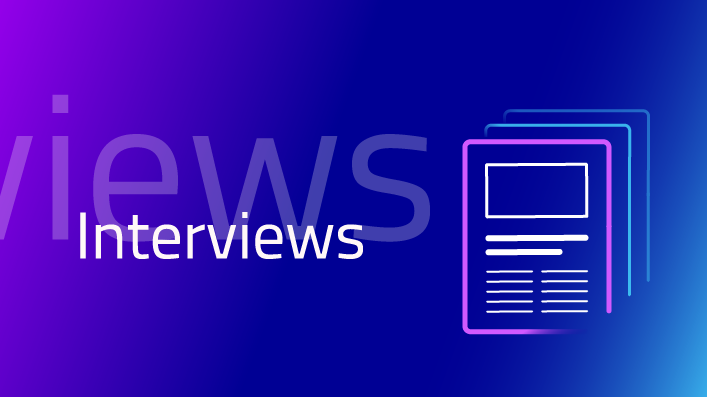
Part of the Gaia-X Voices: Women in Tech, an interview with Marine de Sury, Mission Director, Cigref & Coordinator, Gaia-X Hub France
Drawing inspiration from Marie Curie, Marine de Sury encourages aspiring women in STEM to embrace curiosity and emphasizes the economic benefits of diversity.
Can you introduce yourself, your role in the Gaia-X community, and your current position in the tech sector?
I wear 2 hats in my job: coordinator of the Gaia-X Hub France and mission director at Cigref. Cigref, is a non-profit, non-commercial professional association whose members are the major French companies and public administrations that use digital solutions and services. Cigref supports its members in their strategic thinking on digital issues and in the operational implementation of digital technologies. In Cigref, I lead working groups on topics related to digital transformation. This year’s topics are AI and generative AI, trusted digital and how to integrate startups into the company’s business service.
At the request of the Ministry of the Economy and Finance, Cigref has been involved in the construction of Gaia-X since the start of the cooperation in November 2019, to represent the interests and meet the needs of user companies. Gaia-X is indeed business-driven.
Can you briefly walk us through your career journey in technology/science, highlighting key milestones and experiences? Were there specific moments that significantly influenced your career path?
Since I was a child, I loved Mathematics and Sciences, therefore this led me to study electronic and telecommunication engineering at Grenoble INP Phelma.
I started as a radio engineer, then moved into pre-sales to sell 2.5G and 3G networks. The telecoms sector was booming with the arrival of mobile telephony. I really enjoyed the many challenges linked to new technologies.
I then decided to follow my husband abroad during 8 years (Bilbao and Cartagena in Spain, Bruges in Belgium, Doha in Qatar), where I developed other talents in the extra-professional world. I kept on following new technologies.
Back in France, I worked in marketing for a home automation company, and then as a project manager in 2 start-ups to help them launch their projects. Finally, I joined Cigref. My guiding principle is to work in sectors where technology is booming.
What challenges have you encountered as a woman in the tech industry, and how did you overcome them?
As a woman, we must prove from the very first sentence that we are good at what we do. We don’t have the right to make mistakes. Overall, I haven’t had any problems, even though sometimes people try to test me. However, developing connections, hard work, and the desire to move projects forward together enable everyone to get on board.
Who are some of your role models or sources of inspiration in the tech/science field? How important do you think it is for women to have strong female role models in the industry?
For me, Marie Curie is THE scientific role model par excellence. But what fascinates me about great scientists, men, and women alike, is the imagination that takes them to new heights, the energy they put into their diligent research and into putting it into practice.
In the context of the 2024 theme, “Inspire Inclusion,” why do you think diversity and inclusion are crucial in the tech and science sectors?
Having a balanced representation of men and women in a group, whether within a sector of activity or a profession, generally ensures a certain harmony. That’s why it’s so important to have as many women as men working in the tech industry: we can’t be satisfied with a digital world that is only designed, developed, managed, governed, and implemented by men.
If digital solutions are developed by predominantly male teams, then they will inevitably be biased in the way they approach issues and, in their responses, just as they would be if they were developed by women only.
Finally, increasing the number of women in the tech professions is also an economic challenge, because the French economy does not have enough, or the right quality of the skills needed to develop a sustainable, responsible, and trusted digital economy. It is therefore important to raise awareness of these professions among girls and young women to encourage them to want to work in them.
What advice would you give to young women and girls aspiring to enter the STEM fields? How can women support and uplift each other in the male-dominated tech/science industry?
My advice is to choose subjects that inspire and stimulate them, and to be curious enough to discover the range of possibilities by working with them. All kinds of careers are within their reach. We need them to express all their talents for the greater benefit of our world.
In short, you have to dare!
On a lighter note, if you could choose a superpower to make your work in tech even more incredible, what would it be, and how would it help you tackle the challenges of the digital world?
Magic glasses that give wearers a basic understanding of science. So, everyone, colleagues and citizens alike can embark on the world of technology.